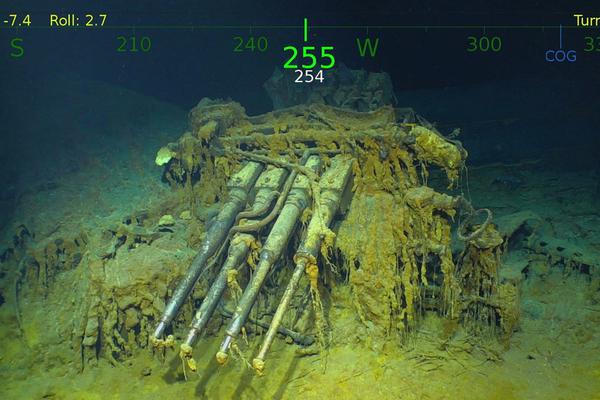
1. The five functions of the operating system are processor management, memory management, device management, file management and job management. Processor management The most basic function of processor management is to process interrupt events. After configuring the operating system, various events can be processed.
2. The main function of the computer operating system is process management, and its work is mainly process scheduling. In the case of a single user and a single taskNext, the processor is only monopolized by one user's task, and the process management work is very simple.
3. Operating System (abbreviation: OS) is a group of interrelated system software programs that supervise and control computer operation, use and run hardware, software resources and provide public services to organize user interaction.
4. Five major management functions of the operating system: (1) Job management: including tasks, interface management, human-computer interaction, graphical interface, voice control and virtual reality, etc. ( 2) File management: also known as information management. ( 3) Storage management: The essence is the management of storage "space", which mainly refers to the management of the main memory.
Any information system has five basic functions, namely: information collection and recording (input); information storage; information processing; information transmission; information output .
According to the functional introduction of the information system, the information system has five basic functions: input, storage, processing, output and control. Different functions have different functions, such as input function: the input function of the information system is determined by the purpose to be achieved by the system, the ability of the system and the permission of the information environment.
Five basic functions of the information system: input, storage, processing, output and control. Input function: The input function of the information system is determined by the purpose to be achieved by the system, the ability of the system and the permission of the information environment.Storage function: Storage function refers to the ability of the system to store various information and data. Mainly including: statistical functions.
The operating system has five functions: processor management: mainly controls and manages the work of the CPU. Storage management: mainly allocate and manage memory. Device management: mainly manage basic input and output devices. File management: responsible for the organization, storage, operation and protection of computer files.
The functions of the computer operating system include: processor management, memory management, device management, file management, job management and other functional modules. Processor management. The most basic function of processor management is to handle interrupt events. The processor can only detect interrupt events and generate interrupts and cannot process them.
The main function of the computer operating system is process management, and its main work is process scheduling. In the case of a single user and a single task, the processor is only monopolized by one user's task, and the work of process management is very simple.
The main functions of the operating system are process and processor management, job management, storage management, device management and file management, as follows: process and processor management. Because the execution of the program must rely on the processor, only one program flow can be processed and executed at any time. Homework management.
I) Processor management The most basic function of processor management is to handle interrupt events. The processor can only detect interrupt events and generate interrupts, and cannot handle these interrupt events. After configuring the operating system, all types of events can be handled.Another function of processor management is processor scheduling.
Five management functions of the operating system: job management: including tasks, interface management, human-computer interaction, graphical interface, voice control and virtual reality, etc. File management: also known as information management. Storage management: The essence is the management of storage "space", which mainly refers to the management of the main memory.

The storage management function of the operating system is to manage memory resources. It mainly realizes memory allocation and recovery, storage protection and memory expansion. The device management of the device management operating system is responsible for allocating and recycling external devices, and controlling external devices to operate according to the requirements of user programs.
The functions of the computer operating system include: processor management, memory management, device management, file management, job management and other functional modules. Processor management. The most basic function of processor management is to handle interrupt events. The processor can only detect interrupt events and generate interrupts and cannot process them.
The five functions of the operating system are processor management, memory management, device management, file management and job management.Processor management The most basic function of processor management is to process interrupt events. After configuring the operating system, various events can be processed.
Casino Plus app-APP, download it now, new users will receive a novice gift pack.
1. The five functions of the operating system are processor management, memory management, device management, file management and job management. Processor management The most basic function of processor management is to process interrupt events. After configuring the operating system, various events can be processed.
2. The main function of the computer operating system is process management, and its work is mainly process scheduling. In the case of a single user and a single taskNext, the processor is only monopolized by one user's task, and the process management work is very simple.
3. Operating System (abbreviation: OS) is a group of interrelated system software programs that supervise and control computer operation, use and run hardware, software resources and provide public services to organize user interaction.
4. Five major management functions of the operating system: (1) Job management: including tasks, interface management, human-computer interaction, graphical interface, voice control and virtual reality, etc. ( 2) File management: also known as information management. ( 3) Storage management: The essence is the management of storage "space", which mainly refers to the management of the main memory.
Any information system has five basic functions, namely: information collection and recording (input); information storage; information processing; information transmission; information output .
According to the functional introduction of the information system, the information system has five basic functions: input, storage, processing, output and control. Different functions have different functions, such as input function: the input function of the information system is determined by the purpose to be achieved by the system, the ability of the system and the permission of the information environment.
Five basic functions of the information system: input, storage, processing, output and control. Input function: The input function of the information system is determined by the purpose to be achieved by the system, the ability of the system and the permission of the information environment.Storage function: Storage function refers to the ability of the system to store various information and data. Mainly including: statistical functions.
The operating system has five functions: processor management: mainly controls and manages the work of the CPU. Storage management: mainly allocate and manage memory. Device management: mainly manage basic input and output devices. File management: responsible for the organization, storage, operation and protection of computer files.
The functions of the computer operating system include: processor management, memory management, device management, file management, job management and other functional modules. Processor management. The most basic function of processor management is to handle interrupt events. The processor can only detect interrupt events and generate interrupts and cannot process them.
The main function of the computer operating system is process management, and its main work is process scheduling. In the case of a single user and a single task, the processor is only monopolized by one user's task, and the work of process management is very simple.
The main functions of the operating system are process and processor management, job management, storage management, device management and file management, as follows: process and processor management. Because the execution of the program must rely on the processor, only one program flow can be processed and executed at any time. Homework management.
I) Processor management The most basic function of processor management is to handle interrupt events. The processor can only detect interrupt events and generate interrupts, and cannot handle these interrupt events. After configuring the operating system, all types of events can be handled.Another function of processor management is processor scheduling.
Five management functions of the operating system: job management: including tasks, interface management, human-computer interaction, graphical interface, voice control and virtual reality, etc. File management: also known as information management. Storage management: The essence is the management of storage "space", which mainly refers to the management of the main memory.

The storage management function of the operating system is to manage memory resources. It mainly realizes memory allocation and recovery, storage protection and memory expansion. The device management of the device management operating system is responsible for allocating and recycling external devices, and controlling external devices to operate according to the requirements of user programs.
The functions of the computer operating system include: processor management, memory management, device management, file management, job management and other functional modules. Processor management. The most basic function of processor management is to handle interrupt events. The processor can only detect interrupt events and generate interrupts and cannot process them.
The five functions of the operating system are processor management, memory management, device management, file management and job management.Processor management The most basic function of processor management is to process interrupt events. After configuring the operating system, various events can be processed.
Hearthstone Arena class tier list 2024
author: 2025-01-08 09:52UEFA Champions League live streaming app
author: 2025-01-08 08:26 LR stock price Philippines
LR stock price Philippines
754.55MB
Check bingo plus update today Philippines
bingo plus update today Philippines
523.55MB
Check Hearthstone Arena class tier list 2024
Hearthstone Arena class tier list 2024
581.86MB
Check UEFA Champions League live streaming app
UEFA Champions League live streaming app
338.22MB
Check DigiPlus fair value
DigiPlus fair value
829.66MB
Check DigiPlus stock
DigiPlus stock
671.87MB
Check UEFA EURO
UEFA EURO
769.51MB
Check Hearthstone Arena win rate
Hearthstone Arena win rate
172.19MB
Check Walletinvestor digi plus
Walletinvestor digi plus
219.55MB
Check Casino Plus GCash login
Casino Plus GCash login
932.23MB
Check UEFA Europa League
UEFA Europa League
712.37MB
Check Bingo Plus
Bingo Plus
661.78MB
Check UEFA Champions League live streaming free
UEFA Champions League live streaming free
676.43MB
Check Hearthstone arena
Hearthstone arena
228.69MB
Check European Cup live
European Cup live
549.81MB
Check Hearthstone Arena win rate
Hearthstone Arena win rate
878.92MB
Check Hearthstone arena class win rates reddit
Hearthstone arena class win rates reddit
926.94MB
Check UEFA Champions League live
UEFA Champions League live
585.23MB
Check Walletinvestor digi plus
Walletinvestor digi plus
518.43MB
Check DigiPlus
DigiPlus
149.41MB
Check Arena plus APK
Arena plus APK
281.38MB
Check bingo plus update today Philippines
bingo plus update today Philippines
853.62MB
Check Casino redeem
Casino redeem
274.54MB
Check Bingo Plus
Bingo Plus
654.84MB
Check Hearthstone arena
Hearthstone arena
543.27MB
Check UEFA European championship
UEFA European championship
186.18MB
Check Champions League
Champions League
386.63MB
Check Casino Plus GCash login
Casino Plus GCash login
424.96MB
Check Hearthstone Arena Tier List
Hearthstone Arena Tier List
884.39MB
Check Walletinvestor digi plus
Walletinvestor digi plus
368.44MB
Check UEFA Europa League
UEFA Europa League
569.31MB
Check Casino Plus login register
Casino Plus login register
729.95MB
Check Casino Plus app
Casino Plus app
553.45MB
Check casino plus free 100
casino plus free 100
392.51MB
Check Casino Plus free 100
Casino Plus free 100
832.79MB
Check European Cup live
European Cup live
192.77MB
Check
Scan to install
Casino Plus app to discover more
Netizen comments More
236 Hearthstone Arena class tier list 2024
2025-01-08 10:11 recommend
271 Arena plus APK
2025-01-08 09:25 recommend
242 DigiPlus stock
2025-01-08 09:23 recommend
763 UEFA Champions League live streaming free
2025-01-08 08:55 recommend
1181 casino plus free 100
2025-01-08 08:52 recommend